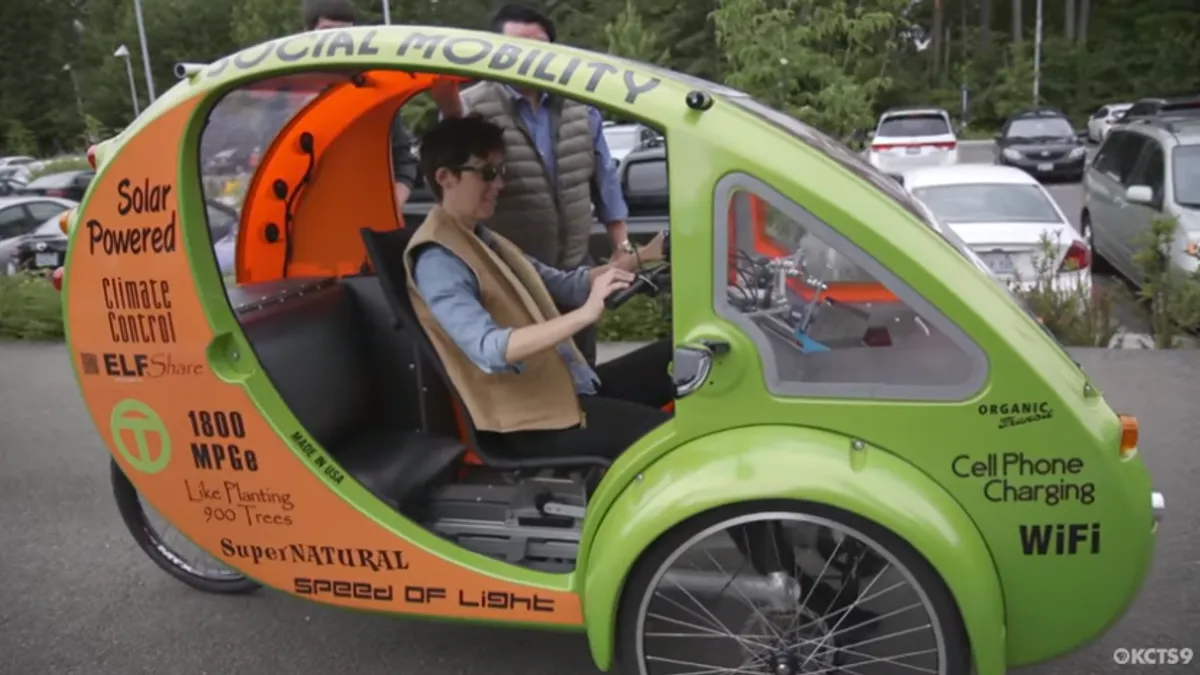Dive Brief:
- Tyler Folsom, a professor at the University of Washington Bothell, is working to expand self-driving technology to bicycles by outfitting recumbent tricycles with computer systems and electronics.
- In an interview with KCTS, a Washington-based PBS station, Folsom said the vehicles can run on three times less energy than a car, and are powered by electric or gas. The vehicles would also cost less than a full self-driving car because there is less technology required.
- "A motorcycle becomes just about as safe as an SUV if there aren’t as many accidents," Folsom told KCTS. Most accidents, he added, are not the fault of the driver, but are because of pedestrians and bikers, meaning a variety of self-driving vehicles would make all roadways safer.
Dive Insight:
Tech firms, automakers and cities are aggressively moving towards a future with self-driving cars, which have obvious benefits for safety, efficiency and mobility for more populations. However, there has also been concern about whether autonomous technology will put more cars on the road, diverting people from cleaner forms of technology. A recent World Economic Forum and the Boston Consulting Group study found that autonomous vehicles (AVs) could increase congestion within city limits by diverting people from transit.
Folsom’s bicycle could help alleviate those concerns by offering a cheaper and more efficient alternative to cars. Folsom has said he envisions the bikes and other small AVs being integrated into public transportation, like a taxi system that draws on solar or wind power. That would help address a major concern about the environmental impact of having fleets of gas-powered cars on the road.
The idea has some support. In 2016, Folsom’s team got a $75,000 grant from Amazon Catalyst and the University of Washington collaborative innovation hub CoMotion.
Similarly, British firm AB Dynamics has been working on a self-driving scooter, which it says can be more nimble and fit into a bigger self-driving future. In an interview with New Atlas, the company points out that vehicles like bikes and motorcycles pose a particular problem for the connected vehicle future, since they are less predictable and can weave through traffic. Having more vehicles that can be tested and thrown into trials will ensure that a transportation system focused on autonomy can include all vehicles.











